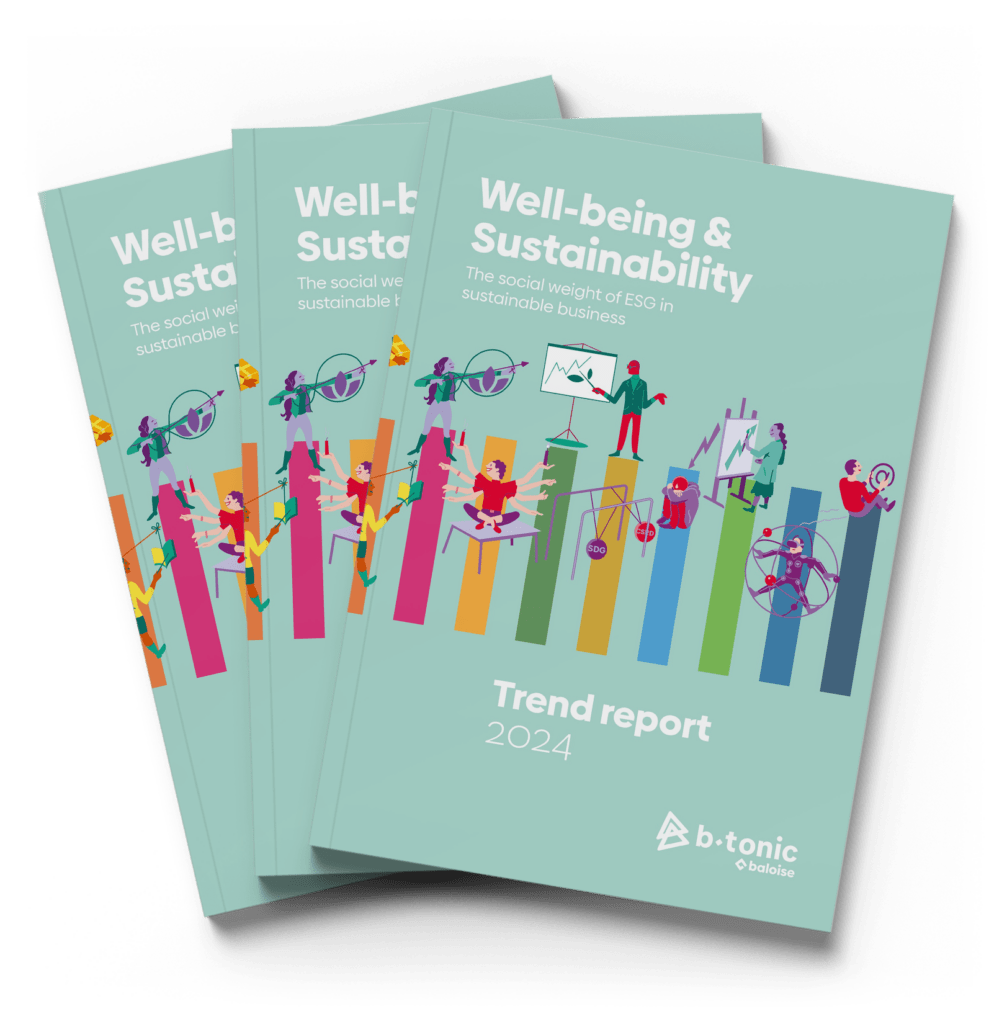Especially health & well-being is given high priority
Although seven out of ten Belgians consider themselves environmentally conscious and concerned about the environment, climate, and planet, only 50% indicate that they consciously adapt their behavior. Especially health and well-being are given high priority within the sustainability theme. All of this is revealed in the Sustainapoll, a survey conducted by the Antwerp Management School (AMS) on sustainability.
- 85% of Belgians are interested in sustainability
- 77% of the respondents are concerned about the state in which we are leaving our planet for future generations.
- 71% consider themselves as someone who is consciously concerned about the environment, climate, and planet.
- Approximately 30% are still not (completely) convinced that humans have an impact on climate change.
- And more than 80% do not consider sustainable or environmentally friendly production as one of the three most important considerations when making a purchase.
Well-being and (mental) health are gaining strong importance.
Opinions on social priorities are sharply divided. However, there is great consensus that Well-being & Health and Energy (turnaround) are the two most important sustainability themes on which to work.
Climate and ecology top the list for almost one in five Belgians (18%). Among 18-34-year-olds, this rises to 23%. After wellbeing and health, reducing CO2 emissions completes the top three, although the difference with responsible use of raw materials and reducing drinking water wastage is small.
We do realise very well that if we want to change anything – be it equality, climate action, health, or any other challenge – it will require extra resilience and creativity from people and so we are going to have to monitor our (mental) health very carefully.

Little impact of own behaviour
Interestingly, the survey shows that Belgians believe they themselves can contribute most to reducing waste and wasting drinking water. Other – often related themes – are less linked to one’s own behaviour: raw materials (in the form of recycling, consuming), limiting CO2 emissions, and energy efficiency are indeed in the top five, but at most a quarter to a fifth of Belgians believe that one’s own behaviour can make a difference in this.
Young people are not more interested in sustainability
It is clear that sustainability as a topic is alive and well in Belgium; 85% are somewhat to strongly interested in it. Interest is stronger the more educated people are, or define themselves as more left-wing politically. It is striking – and contrary to common assumptions that young people are more strongly engaged in this than older people – that there is no greater interest among the youngest age group. Within the 18-34 age group, even one in five has little or no interest in this, which is more than in the 50-plus population.

6 in 10 refrain from unsustainable purchases
Of the five things that more than half of Belgians consider fairly or very strongly in a purchasing decision, three are related to how the company treats people and staff, in addition to use of natural ingredients and pollution control.
When people understand a product’s negative impact on the environment, six in 10 say they will refrain from buying. Half of Belgians have also changed brands at some point because of the poor sustainability reputation of their producer or supplier.
7 key conclusions
- 77% of the respondents are concerned about the state in which we are leaving our planet for future generations.
- 71% consider themselves as someone who is consciously concerned about the environment, climate, and planet.
- Yet in day-to-day practice, it appears that behaviour often does not rhyme with prevailing attitudes and opinions in society.
- Although 7 in 10 consider themselves to be consciously concerned about the environment, climate and planet, only 50% indicate that before acting, they consciously ask themselves how harmful their own behaviour is to people, society or the planet.
- Half do not feel very guilty if they do make harmful choices.
- More than 80% do not mention sustainable or environmentally friendly production as one of the three most important considerations when making a purchase.
- Also, 30% are still not (fully) convinced that humans have an impact on climate change.
Do you also want to make sustainability, well-being and (mental) health a priority for your organisation?
Do you want more info?
Read the full research here.





